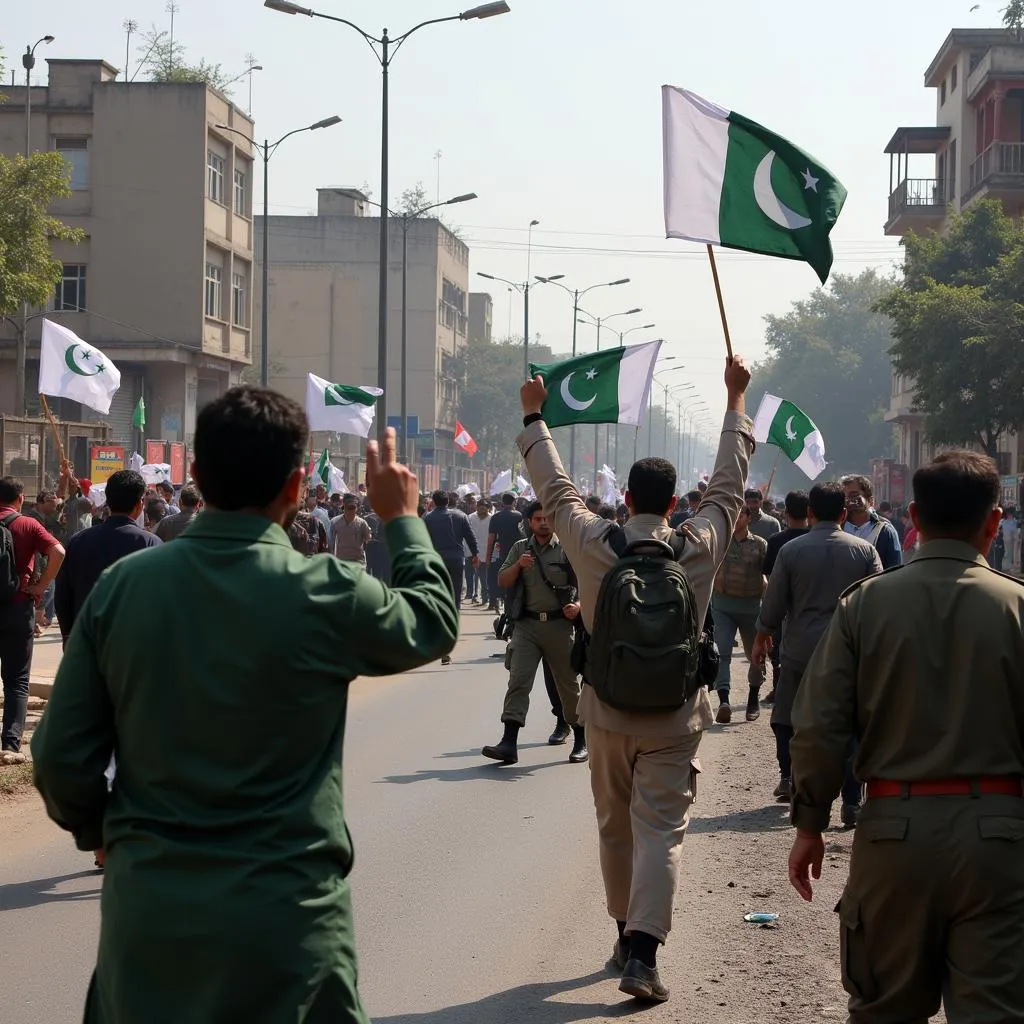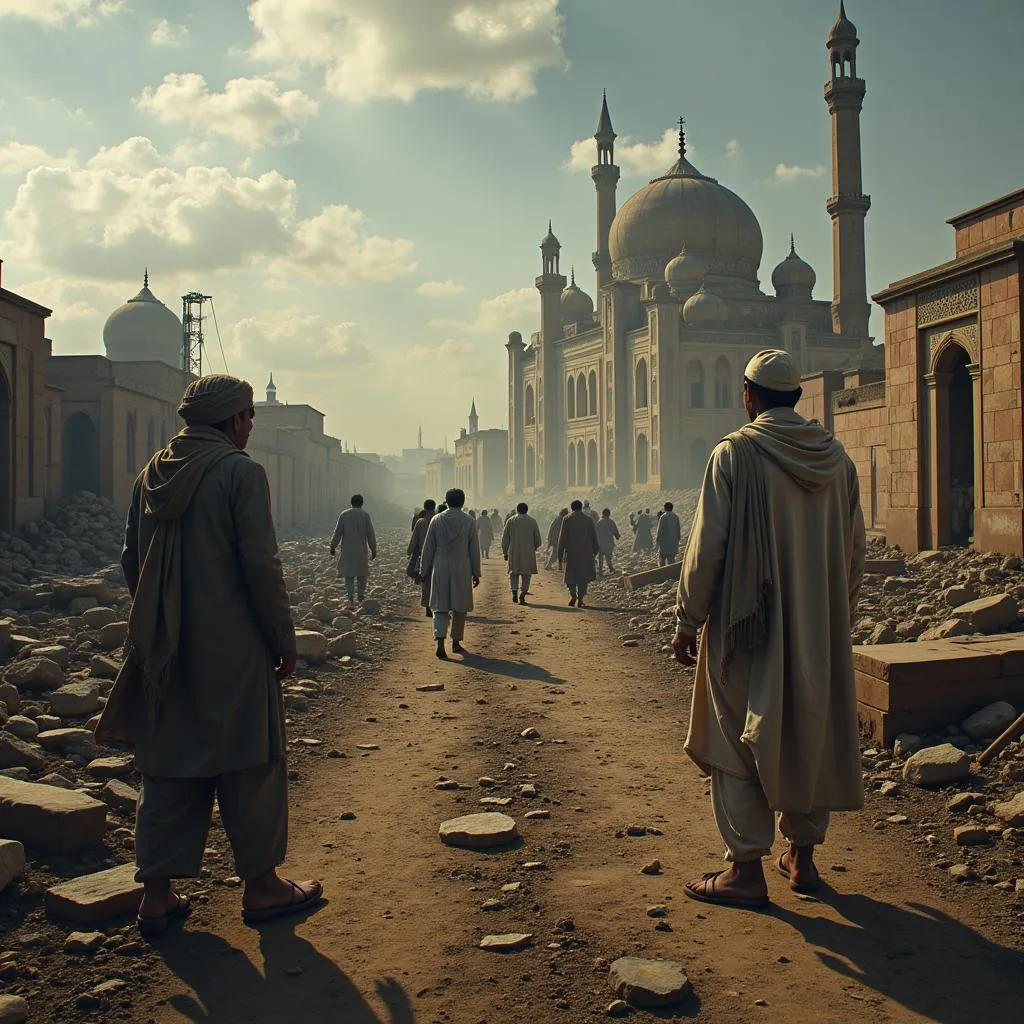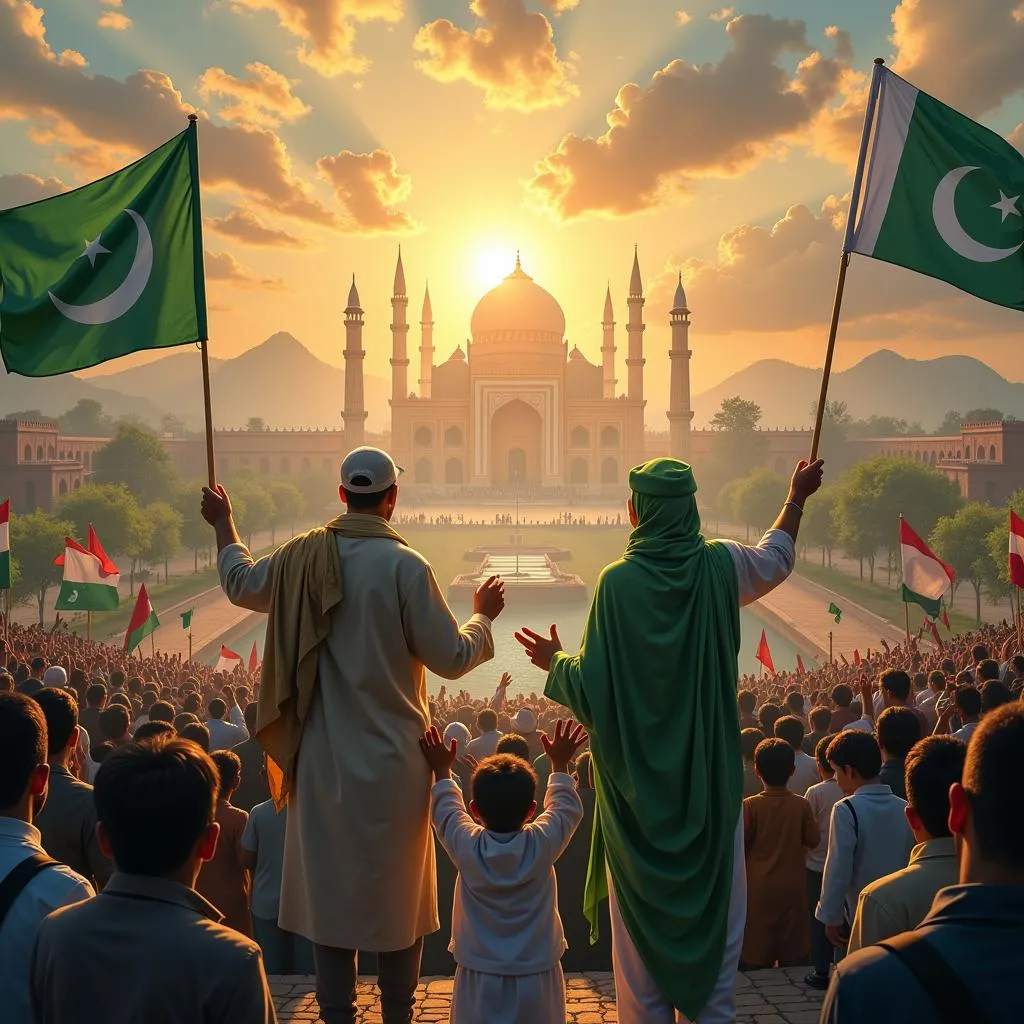Pakistan, since its inception in 1947, has struggled to establish a stable and functioning democracy. The country has experienced multiple military coups, periods of authoritarian rule, and a fragile political system that has often been undermined by corruption, weak institutions, and a lack of accountability. This article will delve into the complex factors that have contributed to the repeated failures of democracy in Pakistan.
Historical Legacy of Authoritarianism
One of the key reasons for the failure of democracy in Pakistan lies in its historical legacy. The country was born out of the partition of British India, a process that was marred by violence and displacement. This traumatic experience left a deep scar on the national psyche and created a climate of instability.
Furthermore, Pakistan inherited a colonial bureaucratic structure that was not designed for a democratic system. The civil service, the military, and the judiciary were all accustomed to functioning under an authoritarian regime. This made it difficult for democratic norms and practices to take root.
 Political turmoil in Pakistan
Political turmoil in Pakistan
Military Interventions and Political Instability
The military has played a dominant role in Pakistani politics throughout its history. The country has experienced four military coups, and the military has directly ruled for more than half of its existence. These interventions have severely undermined democratic institutions and created a culture of impunity for the military.
The military’s involvement in politics has also led to political instability. Military coups and periods of martial law have disrupted the democratic process and prevented the development of strong political parties. This has resulted in a fragmented political landscape where power is often concentrated in the hands of a few elite families.
Weak Institutions and Lack of Accountability
Another major obstacle to democracy in Pakistan is the weakness of its institutions. The judiciary, the parliament, and the election commission have all been subject to political interference and manipulation. This lack of independence has eroded public trust in these institutions and made it difficult for them to function effectively.
Moreover, there is a culture of impunity in Pakistan that shields the powerful from accountability. Corruption is rampant, and those in positions of authority are often able to evade justice. This lack of accountability breeds cynicism and discourages citizens from participating in the democratic process.
Economic Inequality and Social Divisions
Pakistan is a country with deep economic and social divisions. A small elite controls a disproportionate share of the wealth, while the majority of the population lives in poverty. This economic inequality has fueled resentment and instability, making it difficult to build a cohesive society.
 The widening poverty gap in Pakistan
The widening poverty gap in Pakistan
Social divisions along ethnic, religious, and linguistic lines have also contributed to the failure of democracy. These divisions are often exploited by politicians for their own gain, leading to polarization and conflict.
Role of External Actors
Pakistan’s foreign policy has also played a role in undermining democracy. The country has been a key ally of the United States in the war on terror, and has received billions of dollars in aid. However, this relationship has come at a cost.
The US has often turned a blind eye to human rights abuses and democratic backsliding in Pakistan in exchange for its cooperation in the fight against terrorism. This has further weakened democratic institutions and emboldened authoritarian forces.
Conclusion
The failure of democracy in Pakistan is a complex issue with deep-rooted historical, political, economic, and social causes. The country faces significant challenges, including a powerful military, weak institutions, rampant corruption, and deep social divisions.
Addressing these challenges will require a long-term commitment to democratic reforms, strengthening institutions, promoting economic development, and addressing social inequalities.
 The future of democracy in Pakistan
The future of democracy in Pakistan
Pakistan’s future depends on its ability to overcome these obstacles and establish a stable and functioning democracy. The international community can play a supportive role by promoting democratic values, providing development assistance, and holding the Pakistani government accountable for its actions.
FAQs
1. What is the main reason for the failure of democracy in Pakistan?
There is no single reason for the failure of democracy in Pakistan. It is a complex interplay of factors including military interventions, weak institutions, corruption, economic inequality, and social divisions.
2. Has Pakistan ever had a successful democracy?
Pakistan has had periods of democratic rule, but these have been short-lived and often interrupted by military coups.
3. What can be done to improve the chances of democracy succeeding in Pakistan?
Strengthening democratic institutions, promoting economic development, addressing social inequalities, and ending military intervention in politics are crucial steps.
4. What is the role of the international community in supporting democracy in Pakistan?
The international community can provide development assistance, promote democratic values, and hold the Pakistani government accountable for its actions.
5. What is the future of democracy in Pakistan?
The future of democracy in Pakistan remains uncertain. However, there is hope that the country can overcome its challenges and establish a stable and functioning democracy.
Other Relevant Articles
- The History of Democracy in Pakistan
- The Role of the Military in Pakistani Politics
- Corruption in Pakistan
- Economic Inequality in Pakistan
- Social Divisions in Pakistan
Contact Us
For any queries or assistance, please contact us:
Phone Number: +923337849799
Email: news.pakit@gmail.com
Address: Dera Ghazi Khan Rd, Rakhni, Barkhan, Balochistan, Pakistan
We have a 24/7 customer support team available to assist you.